Charting Your Course: A Comprehensive Guide to Tax Planning
Charting Your Course: A Comprehensive Guide to Tax Planning
Tax season. For many, it's a time of stress, confusion, and maybe even a little bit of dread. But what if you could approach tax season with confidence, knowing you've taken the proper steps to minimize your tax liability and maximize your financial well-being? That's where the power of effective tax planning comes in. Are you ready to take control of your taxes and make them work for you, not against you?
At Lion Tax, we believe that tax planning is an essential part of sound financial management. It's not just about crunching numbers and filling out forms; it's about developing a strategic roadmap to navigate the complex world of taxes and achieve your financial goals. Whether you're an individual, a family, or a business owner, understanding the principles of tax planning can make a significant difference in your financial success.
What is Tax Planning, and Why is it So Important?
Tax planning is the process of arranging your financial affairs to minimize your tax liability while staying compliant with all applicable tax laws. It's a proactive approach that involves analyzing your current financial situation, forecasting future income and expenses, and identifying opportunities to reduce your tax burden. It’s about more than just reacting to tax season; it’s about anticipating it and preparing strategically.
So, why is tax planning so important?
- Minimize Your Tax Bill: Lessening your tax bill is the most obvious benefit of tax planning. You can keep more of your hard-earned money by planning how you handle your income, deductions, and credits.
- Maximize Your Financial Resources: Effective tax planning frees up more of your financial resources, allowing you to invest in your future, save for retirement, or pursue other financial goals.
- Stay Compliant with Tax Laws: Tax laws are complicated and constantly changing, so make sure you follow them. Proper tax planning ensures you follow the law and avoid expensive fines.
- Gain Financial Peace of Mind: Knowing you have a solid tax plan in place can provide peace of mind and reduce the stress associated with tax season.
- Achieve Your Financial Goals: Financial planning must include tax planning as a key component. Reducing your taxes will allow you to make more rapid progress toward accomplishing your financial goals.

Key Components of Effective Tax Planning
Effective tax planning involves a multi-faceted approach encompassing various strategies and considerations:
- Understanding Tax Laws: Staying informed about current tax laws and regulations is essential for effective tax planning. Tax laws are subject to change, so it's necessary to keep up-to-date on the latest developments.
- Income Management: Managing your income strategically can help minimize your tax liability. This may involve timing the receipt of income, deferring income to a later year, or investing in tax-advantaged investments.
- Deduction Optimization: Identifying and maximizing all eligible tax deductions is a key component of tax planning. This requires careful record-keeping and a thorough understanding of the available deductions.
- Credit Utilization: Tax credits can result in large tax savings. Understanding which credits you qualify for and how to claim them is critical.
- Investment Strategies: Your investment strategy can significantly impact your taxes. To reduce your tax burden, consider investing in tax-advantaged accounts, such as IRAs or 401(k)s.
- Retirement Planning: Retirement planning and tax planning go hand in hand. Strategically planning for retirement can help minimize your taxes during your retirement years.
- Estate Planning: Estate planning is another important aspect of tax planning, particularly for high-net-worth individuals. Proper estate planning can help minimize estate taxes and ensure your assets are distributed according to your wishes.
Tips for Successful Tax Planning
- Start Early: The earlier you begin tax planning, the more opportunities you'll have to implement effective strategies. Don't wait until the last minute!
- Stay Organized: Maintain accurate records of your income and expenses throughout the year. This will make tax planning and preparation much more manageable.
- Seek Professional Advice: Consult a qualified tax professional for personalized tax advice. A tax professional can help you figure out how to follow the complicated tax laws and make a tax plan that works for you.
- Review Your Tax Plan Regularly: Your financial situation and tax laws can change over time. It's important to review your tax plan periodically and make adjustments as needed.
- Consider Tax-Advantaged Investments: To reduce your tax liability, explore tax-advantaged investment options, such as IRAs, 401(k)s, and municipal bonds.
- Maximize Charitable Contributions: Donating to qualified charities can provide tax benefits. Consider donating appreciated assets, such as stocks, to maximize your deduction.
- Plan for Major Life Events: Major life events, such as marriage, divorce, or the birth of a child, can have a significant impact on your taxes. Plan accordingly to minimize any tax consequences.
How Lion Tax Can Help
At Lion Tax, we offer comprehensive tax planning services to help individuals and businesses navigate the complexities of tax law and achieve their financial goals. Our team of experienced tax professionals provides personalized advice and guidance tailored to your specific needs. We offer a variety of services, including:
- Personal Tax Planning: We'll work with you to develop a personalized tax plan that minimizes your tax liability and aligns with your financial goals.
- Personal Tax Advice: Our team is available to answer your tax questions and provide guidance on any tax-related matters.
- Personal Tax Services: We provide a full variety of personal tax services, such as tax preparation, filing, and representation during an audit.
- Preparation Services: We can assist you with preparing all necessary tax forms and ensuring your returns are filed accurately and on time.
- Planning Services: Our planning services include developing long-term tax strategies, analyzing the tax implications of financial decisions, and providing guidance on estate planning and retirement planning.
Tax planning can be difficult; we get that. That's why we're here to help. Our goal is to give you the tools and information you need to take charge of your taxes and feel safe about your money. Get in touch with us right away to find out more about how our tax planning services can help you. Let us help you plan your way to financial freedom.





